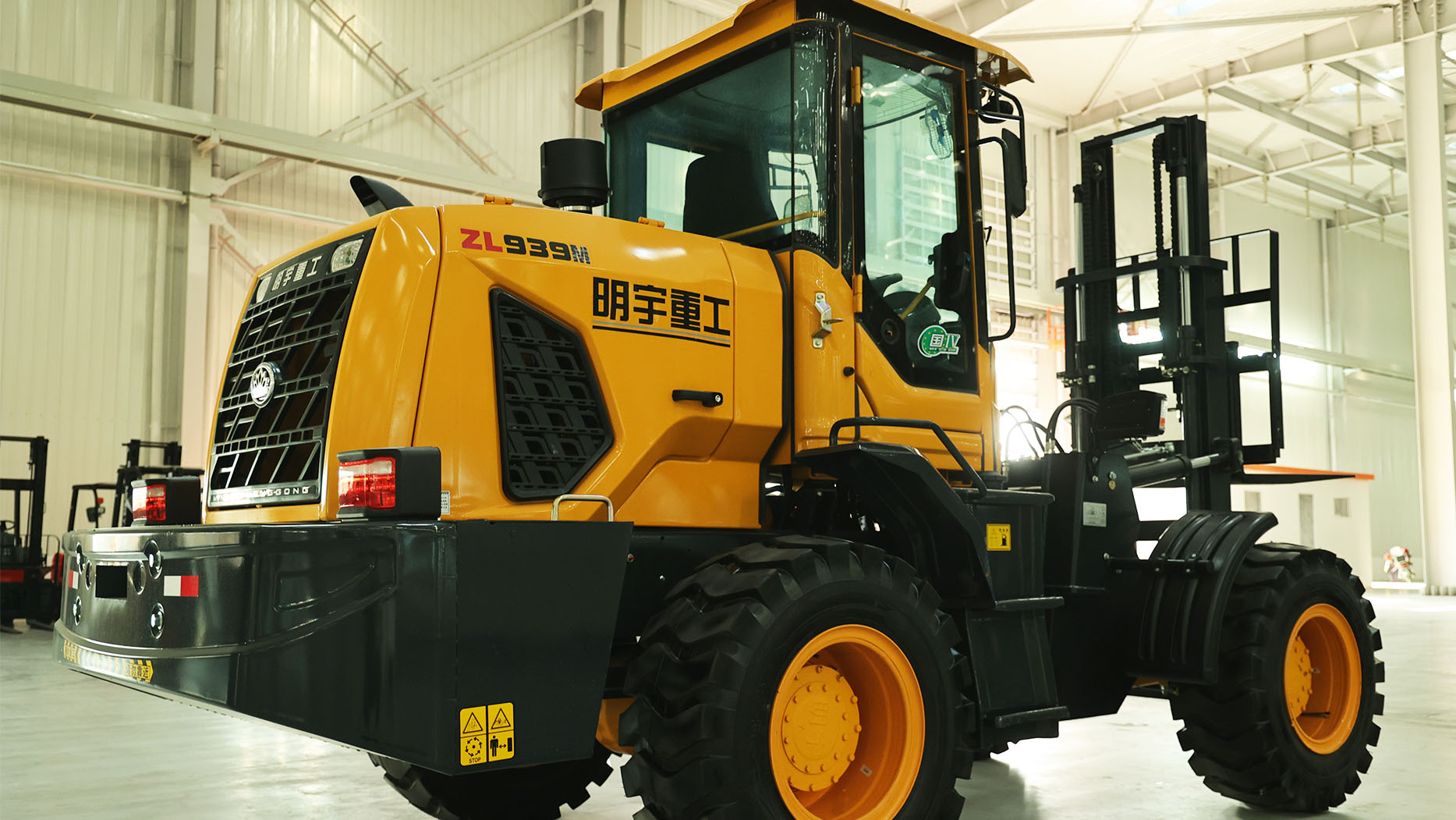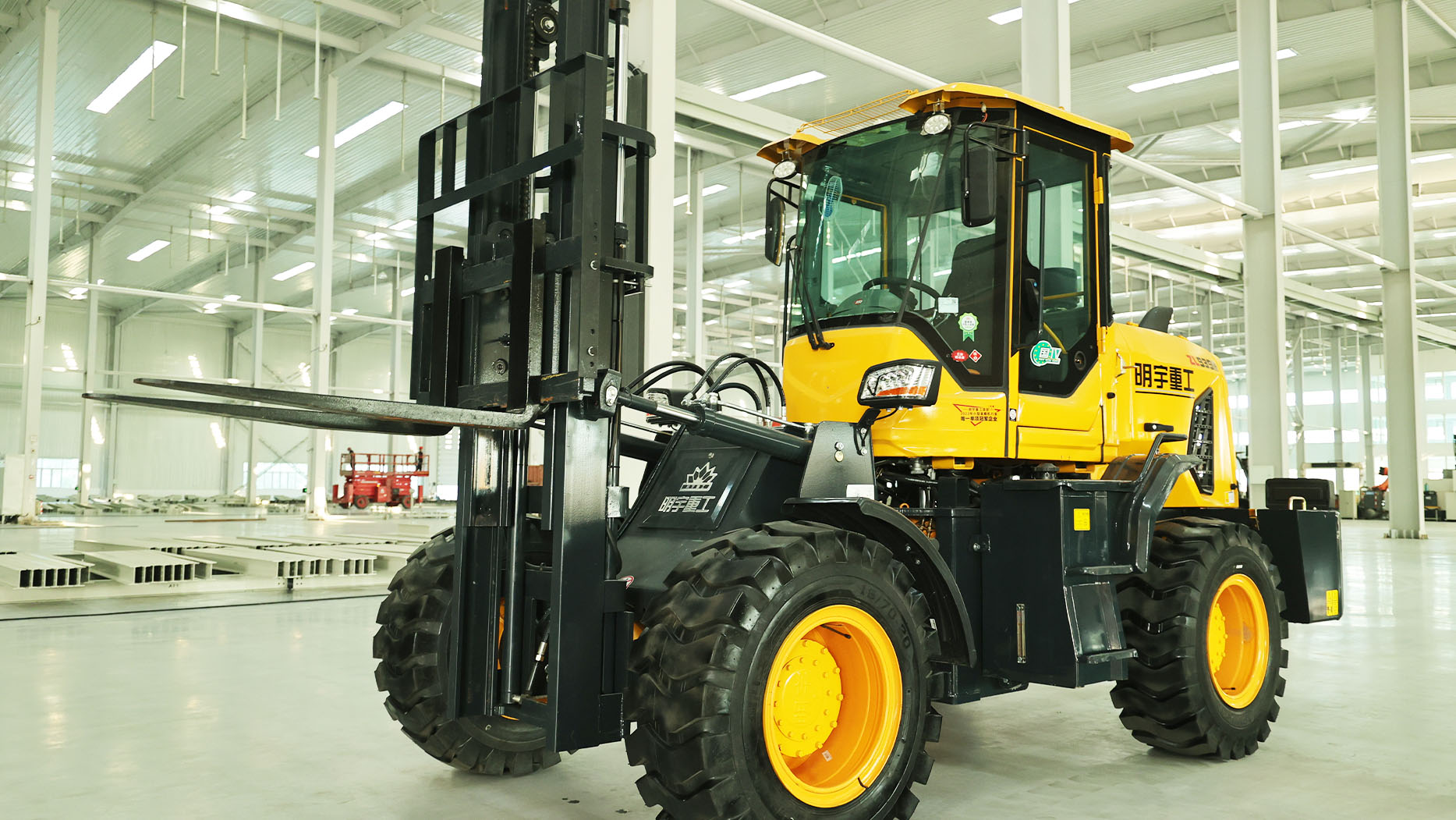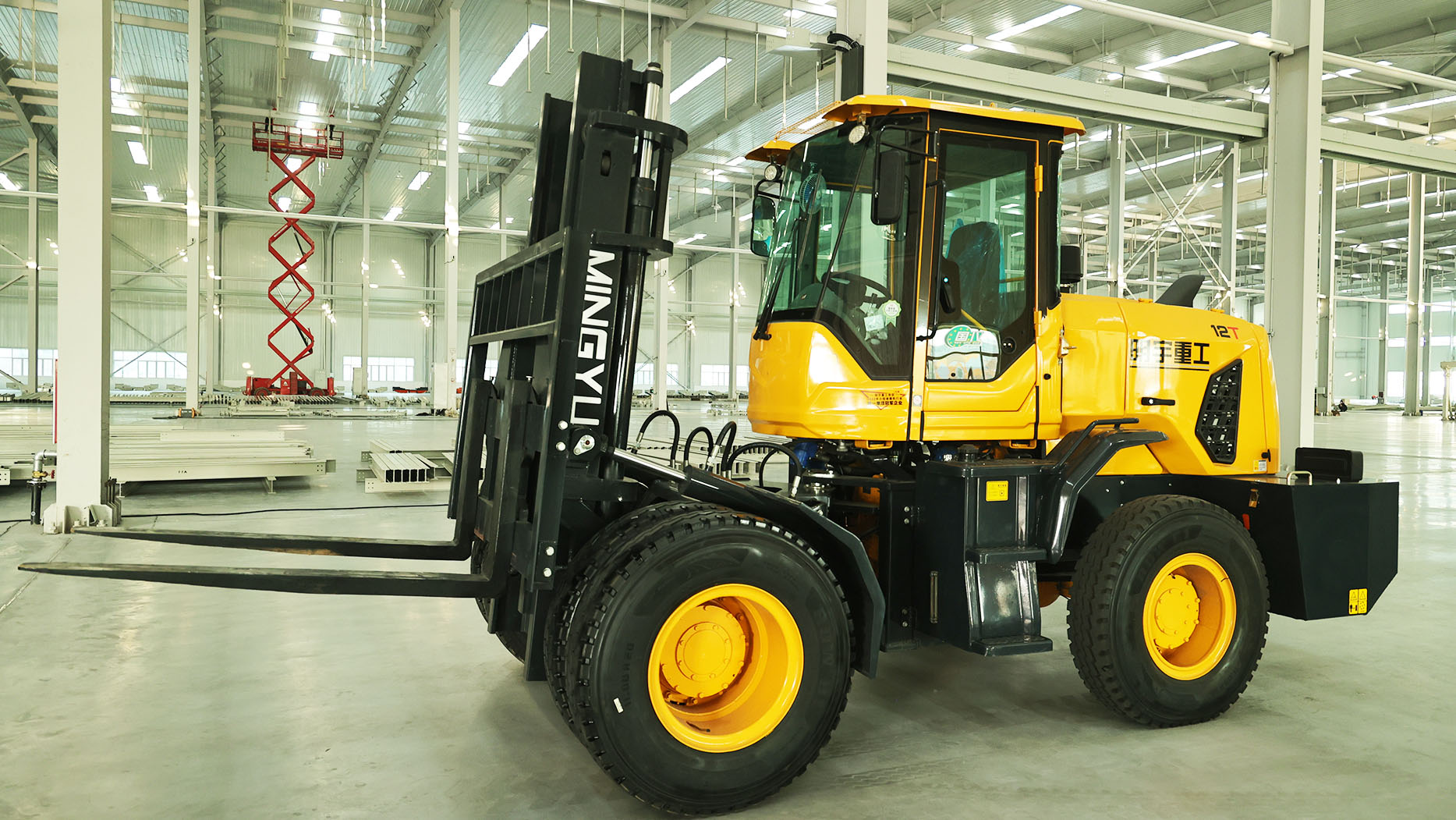The construction, agriculture, and mining industries often require the movement of heavy and bulky materials across uneven and challenging landscapes. This is where the rugged capabilities of rough terrain forklifts come into play, and behind the controls of these powerful machines are skilled operators whose expertise is crucial for efficient and safe operations. Understanding how much these specialized operators earn is a complex question, influenced by a variety of factors ranging from experience and location to the specific industry and the operator's certifications. This technical article will delve into the salary landscape for rough terrain forklift operators, exploring the average earnings, the factors that contribute to pay variations, and what individuals can expect in this demanding but essential profession.
The National Average: A Baseline Figure
Establishing a precise average salary for rough terrain forklift operators can be challenging due to the nuances of the job market and the varying data collection methodologies. However, based on recent data from various sources, we can establish a general range.
As of May 2025, estimates suggest that the average hourly pay for a rough terrain forklift operator in the United States falls in the range of $18 to $20 per hour. This translates to an average annual salary of approximately $37,000 to $41,500.
It's important to note that these figures represent a national average, and actual earnings can deviate significantly based on the specific circumstances of the job. Entry-level positions may start at a lower rate, while experienced operators with specialized skills and certifications can command higher wages.
Key Factors Influencing Earning Potential:

Several crucial factors contribute to the variation in pay for rough terrain forklift operators:
Experience Level: As with most professions, experience plays a significant role in determining salary. Entry-level operators with minimal experience will typically earn less than seasoned professionals who have years of proven expertise and a track record of safe and efficient operation. With increasing experience, operators become more proficient in handling various types of loads, navigating challenging terrain, and troubleshooting potential issues, making them more valuable to employers.
Geographic Location: The cost of living and prevailing wage rates vary considerably across different states and even within different cities or regions within a state. Areas with a higher cost of living or those experiencing a greater demand for skilled construction and material handling professionals often offer higher wages to attract and retain qualified operators. For instance, states with robust construction or resource extraction industries might see higher average salaries for rough terrain forklift operators.
Industry: The specific industry in which a rough terrain forklift operator is employed can also impact their earnings. For example, operators working in specialized sectors like mining, oil and gas, or large-scale infrastructure projects might earn more than those in general construction or agricultural settings due to the complexity and potential hazards associated with these industries.
Employer Size and Type: Larger companies or those with more complex operations may offer higher wages and more comprehensive benefits packages compared to smaller businesses. Public sector jobs might have different pay scales than private companies.
Certifications and Skills: Possessing relevant certifications can significantly boost an operator's earning potential. While a basic forklift operator certification is generally required, specialized certifications for operating specific types of rough terrain forklifts (e.g., telescopic handlers, lull forklifts) or demonstrating expertise in advanced operating techniques and safety protocols can command higher pay. Additional skills such as basic maintenance and troubleshooting of the equipment can also increase an operator's value.
Type of Equipment Operated: Rough terrain forklifts encompass a range of specialized machines, including articulated forklifts, telescopic handlers (often with rough terrain capabilities), and traditional mast forklifts with enhanced off-road features. Operators proficient in handling more complex or high-capacity equipment may earn a premium.
Union Membership: In some regions and industries, unionized positions for equipment operators, including rough terrain forklift operators, may offer higher wages and better benefits compared to non-union jobs.
Shift and Overtime: Operators working night shifts, weekends, or those who regularly work overtime hours often receive additional compensation in the form of shift differentials or overtime pay, which can significantly increase their overall earnings.
Regional Salary Variations: A Snapshot Across the US
While a national average provides a general benchmark, examining salary data at the state and even metropolitan level reveals significant variations. For example, data from May 2025 indicates the following trends (these are approximate and subject to change):
States with potentially higher average salaries: States with strong construction, mining, or oil and gas industries, such as Alaska, Wyoming, and some parts of the Northeast or West Coast, might show higher average wages due to demand and cost of living.
States with potentially average salaries: Many states in the Midwest and Southeast might align more closely with the national average.
States with potentially lower average salaries: States with a lower cost of living or a less robust demand in these specific industries might see slightly lower average wages.
It's crucial to consult up-to-date salary surveys and job postings specific to the desired geographic location to get a more accurate understanding of the prevailing wage rates.
 Beyond the Hourly Wage: Benefits and Total Compensation
Beyond the Hourly Wage: Benefits and Total Compensation
When evaluating the financial aspects of a rough terrain forklift operator's job, it's essential to consider the entire compensation package, which often extends beyond the hourly wage. Benefits can include:
Health Insurance: Employer-sponsored health, dental, and vision insurance.
Retirement Plans: 401(k) or other retirement savings plans, sometimes with employer matching contributions.
Paid Time Off: Vacation days, sick leave, and holidays.
Life Insurance: Employer-provided or voluntary life insurance policies.
Disability Insurance: Short-term and long-term disability coverage.
Training and Development: Opportunities for professional development and certification upgrades.
The value of these benefits can be substantial and should be factored into the overall compensation assessment.
Career Advancement and Earning Growth:
For individuals entering or advancing in the field of rough terrain forklift operation, there are opportunities for career growth and increased earning potential. This can include:
Gaining Experience: As operators accumulate more years on the job and demonstrate consistent proficiency and safety, their earning potential naturally increases.
Obtaining Specialized Certifications: Investing in certifications for specific types of rough terrain forklifts or advanced operating techniques can open doors to higher-paying positions.
Moving into Supervisory Roles: Experienced operators may have the opportunity to advance into lead operator or supervisory positions, overseeing the work of other operators and earning a higher salary.
Cross-Training on Other Equipment: Expanding skill sets to operate other types of heavy equipment can increase versatility and make operators more valuable to employers, potentially leading to higher pay.

The Future Outlook for Rough Terrain Forklift Operators:
The demand for skilled equipment operators, including those specializing in rough terrain forklifts, is generally expected to remain stable as industries like construction, infrastructure development, agriculture, and resource extraction continue to operate. Technological advancements in equipment may lead to the need for operators with updated skills and certifications, potentially further increasing the value of qualified professionals.
Conclusion: A Skilled Trade with Variable Rewards
The earnings of rough terrain forklift operators are influenced by a complex interplay of factors, with experience, location, industry, and certifications being among the most significant. While national averages provide a general guideline, understanding the specific dynamics of the local job market and the value of specialized skills is crucial for both individuals seeking employment and employers looking to attract and retain qualified operators. This skilled trade plays a vital role in numerous essential industries, and for those who possess the necessary expertise and dedication to safety, it can offer a rewarding career with opportunities for steady income and potential for growth. By staying informed about industry trends, pursuing relevant certifications, and gaining valuable experience, rough terrain forklift operators can navigate the pay scales and maximize their earning potential in this demanding but crucial profession.
Post time:May.19.2025
